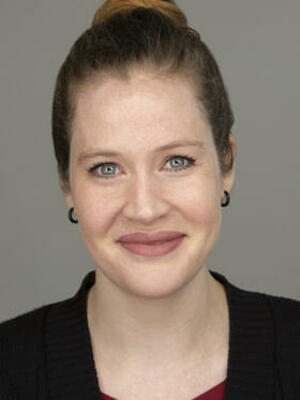
Research Capacity Strengthening Seminar Series
LSTM has been awarded Wellcome Trust funding - Institutional Translational Partnership Award (iTPA) - to undertake a two-year scheme aimed at removing barriers between research disciplines. Members of the Centre for Capacity Research joined the LSTM programme to facilitate a series of training seminars and workshops which focussed on identified bottle necks in research translation to make it easier for research to progress along the translational pathway.
Designing research capacity strengthening components within funding proposals
In this seminar Dr Justin Pulford explains how to approach writing the research capacity strengthening section of a funding proposal including systematically planning research capacity strengthening activities; designing the activities with partners; indicators for monitoring progress and collecting data against indicators; and reporting on research capacity strengthening achievements.
Presentation slides
Further reading/resources
A framework and indicators to improve research capacity strengthening evaluation practice
Planning, Monitoring and Evaluation Framework for Research Capacity Strengthening
Frameworks for evaluating health research capacity strengthening: A qualitative study
Building capacity in health research in the developing world
How to create and use a theory of change/pathway to impact
Join Prof Imelda Bates in this CCR seminar exploring what a theory of change/pathway to impact is, why they are useful, and who they are for. Prof Bates also discusses what content should be included and how partners can design and refine their project’s own theory of change/pathway to impact.
Presentation slides
Further reading/resources
Review of the use of ‘Theory of Change’ in international development
A framework and indicators to improve research capacity strengthening evaluation practice
How to manage research consortia
Dr Nadia Tagoe (KEMRI-Wellcome Trust) talks about the process for selecting and managing partners and how to decide on roles, responsibilities, governance and allocating resources. Dr Tagoe reflects on research consortia coordination and monitoring, as well as tips for managing tensions and trade-offs between excellence and equity, short- and long-term outputs, and consortium and institutional needs.
Presentation slides
Further reading/resources
Consortium Alignment Framework for Excellence
KFPE’s Guide for Transboundary Research Partnerships
A guide to Effective Collaboration and Learning in Consortia
Successful partnerships: A Guide
Examining the Management Processes and Practices of Health Research Capacity Strengthening Consortia
Teamwork to prepare funding proposals
Prof Imelda Bates, Lorelei Silvester and Susie Crossman provide guidance and tips for preparing and submitting a typical funding proposal, looking at ways that teamwork can be used to streamline the process.
Further reading/resources
UK Research & Innovation (UKRI)
How to optimise cross-disciplinary research collaborations
In this seminar, Dr Yan Ding discuss the difference between multi-, inter-, trans- and cross-disciplinary research collaborations and how to actively plan them. In addition, Dr Ding explores activities that researchers, institutions and funders can do to promote cross-disciplinary research collaborations and how to demonstrate progress and success.
Presentation slides
Further reading/resources
Tips for conducting cross-disciplinary research
Tips for training interdisciplinary researchers
Tips for writing an interdisciplinary research proposal
Avoiding pitfalls in cross-disciplinary global health research
Tips on fostering cross-disciplinary research collaborations when not working face to-face
How to measure research outcomes and impact
Dr Justin Pulford discusses how to measure research outcomes and impact including how to plan for outcomes and impact from the beginning of a project, the careful selection of indicators that are meaningful to partners and funders, and measurable, and how to show your project is on a trajectory to achieve impact.
Presentation slides
Further reading/resources
Global Health Research: Designs & Methods
WHO 100 Core Health Indicators
UK Government guidance to logic models
The Value of Theory of Change at the Portfolio Level in Large-Scale Projects
Community Engagement
Join Dr Tara Tancred to learn all things community engagement - What community engagement is (and what it is not), when it should be used, how to do it, and how to write key aspects of community engagement into proposals.
Presentation slides
Further reading/resources
A resource guide for community engagement and involvement in global health research
Incorporating PhD studentships into projects: how to enhance the students’ experience
Dr Taghreed El Hajj discusses the factors impacting PhDs including the challenges and enablers to success. The seminar also explores how to bridge capacity gaps and how to foster students’ research work including how to harness the benefits of research consortia membership. Dr El Hajj also examines how institutions can enhance PhD students’ overall experience.
Presentation slides











